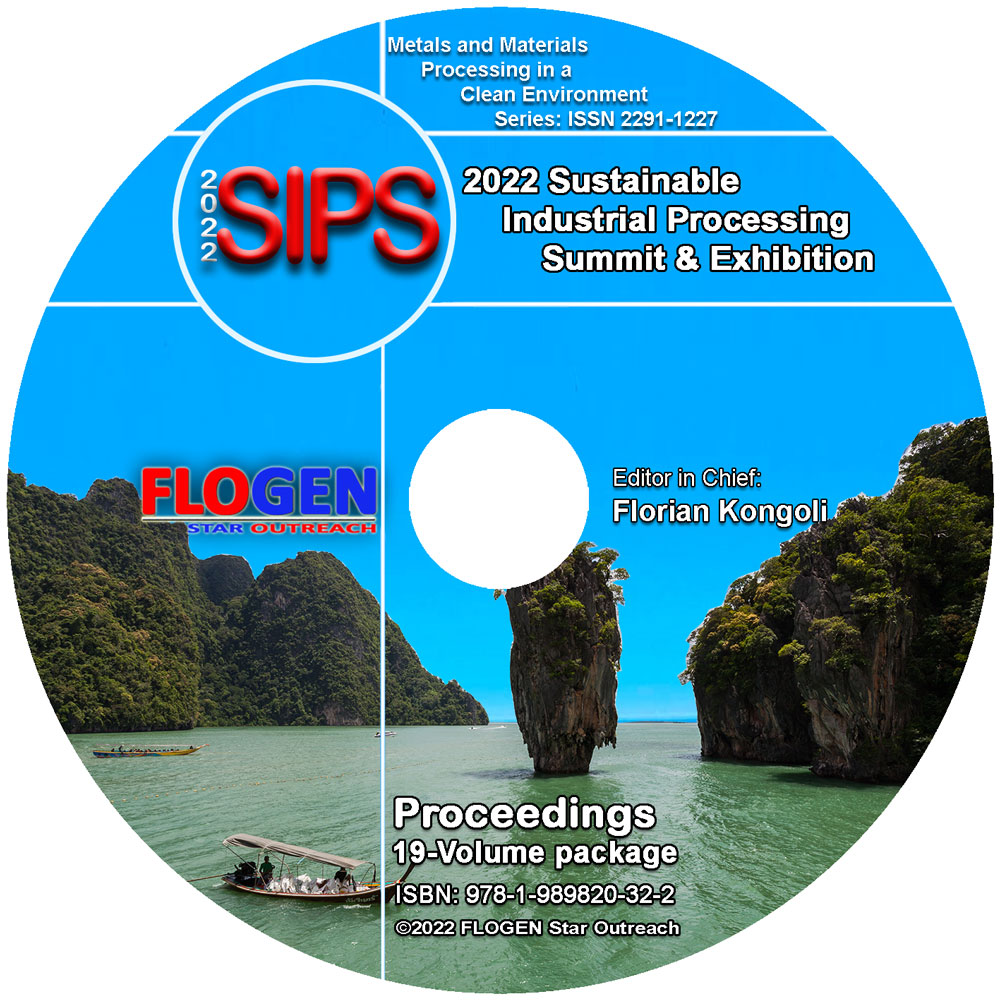2022-Sustainable Industrial Processing Summit
SIPS2022 Volume 16 Intl. Symp on Mathematics, Modelling and Geomechanics
| Editors: | F. Kongoli, E. Aifantis, T. Vougiouklis, A. Bountis, P. Mandell, R. Santilli, A. Konstantinidis, G. Efremidis. |
| Publisher: | Flogen Star OUTREACH |
| Publication date: | 22 December 2022 |
| Pages: | 235 pages |
| ISBN: | 978-1-989820-64-3(CD) |
| ISSN: | 2291-1227 (Metals and Materials Processing in a Clean Environment Series) |

CD shopping page
Cellular automata and the foundations of physics
Peter Rowlands1;1UNIVERSITY OF LIVERPOOL, Liverpool, United Kingdom;
Type of Paper: Plenary
Id Paper: 58
Topic: 38
Abstract:
Previous work by the author has proposed a foundation for physics based on a Klein-4 symmetry between the four fundamental parameters mass, time, charge and space. These parameters and the algebras which specify their properties can then be seen as generated by a computational universal rewrite system, based on a zero totality state for the universe. The algebras, remarkably, combine to a 64-component group which is isomorphic to the gamma algebra of the Dirac equation, the equation which defines the fundamental (fermionic) state in physics. A very powerful version of relativistic quantum mechanics emerges from the application of this algebra, based on a state vector which is nilpotent or squaring to zero. In view of the various proposals made for founding physics on the behaviour of cellular automata, and the claim that long-range order in automata is only possible via the Klein-4 group (1), it is proposed to investigate possible connections between the Klein-4 group as used by the author in fundamental physics and the Klein-4 group as it becomes relevant to cellular automata, along with the computational developments with which they are each connected.
Keywords:
physics; quantum mechanics; Mathematics;References:
1 Mainzer, K. and Chua, L., The Universe as Automaton From Simplicity and Symmetry to Complexity, Springer, 2012